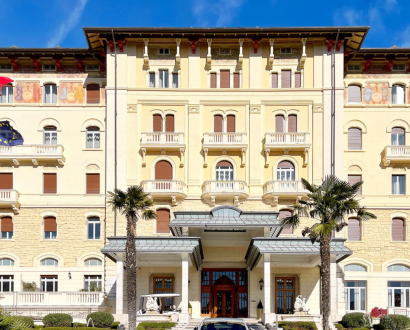We all know about bracket creep, where small increases in salary over a few years push people into a higher tax bracket.
In the first two decades of the twenty-first century corporate executives and small business owners have experienced what could be called ‘work creep’. Work has crept into more and more areas of our personal lives, especially through smartphone technology.
Gallup research indicates four in 10 people are working more than 50 hours a week. Studies show we become tired and less productive after working 50 hours a week. Working long hours is the main reason for sleep deficit, which is a huge productivity killer.
The overall effect has been to create more tired and busy people who never fully switch off from being in ‘work mode’… even on holidays. Sadly, for a growing cohort, burnout has become totally debilitating.
According to insurer AMP, income protection claims in 2016 for psychological injuries (stress, anxiety and depression) have increased dramatically and are now at the same level as physical injuries and double the rate for cancer.
It’s all about managing your energy
One of the important strategies for better integrating your busy work roles with all that is precious in your life is to learn to manage your energy. We have limited supplies of energy. When we work long hours every week, we burn up our energy.
Stress interrupts our sleep and undermines other essentials for replenishing energy. While physical fitness is important, and has been shown to assist greatly in stress management, there is a bigger picture.
You can be physically fit and emotionally drained, which leads to flatness, reduced function and decreased productivity. If unaddressed, this leads to what is loosely called burnout.
The Rhythm of Life
Rhythm of Life (ROL) is a term I introduced in my book (Integrate, 2016). ROL is not about circadian rhythms or being a morning person or a night owl. ROL takes in the bigger picture. It varies from person to person.
It depends on how well you sleep. It depends on your mental health needs. ROL is about helping busy and passionate people to work hard and yet manage their energy so that they protect themselves from burnout.
Somewhere between four and six weeks of working hard with few breaks everybody starts to become weary. We cease working at optimum level. Our decision making is slower. We have less clarity. We feel a bit flat. We tell ourselves we are just having an off day. If we are monitoring it, we notice our output drops. So, what do we do? Some stay at work and push through. Others find a way to increase the pressure and squeeze even more adrenaline into their system.
However, psychologist Archibald Hart argues that there is a strong correlation between adrenaline and heart disease (Adrenaline and Stress, 1995).
Rhythm of Life summarised
- ROL is how you make sure you always have energy for those high-impact times when you must be sharp, and at your very best.
- It is a structure that enables you to carve out time to relax and manage your energy levels based on your understanding of your body and your needs.
- It requires learning about yourself, your strengths and weaknesses, and your emotional capacity. It helps you become more self-aware and able to read and manage yourself in the moment.
- It helps you discover your unique ways to refill your emotional and physical energy tanks.
- It teaches you to create an energy map of your week so you are always ready for the high-stress and high-impact times each day and week.
- ROL is a simple and effective way to factor a self-care strategy into the way you conduct your business life. For example, you do not set a challenging decision-making meeting at 8am the day after you have had a late night dealing with an emotionally draining matter.
In business, there are times when we all have to suck it up and do whatever it takes to make things happen. The smart people (those more likely to win more often) are those who understand their ROL and make sure they are managing themselves well. They will factor in a long weekend here, a week off there, or a relaxing Saturday to replenish before a major new project begins.
Read more about how you can beat burnout when you’re the boss.







